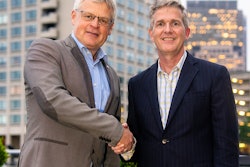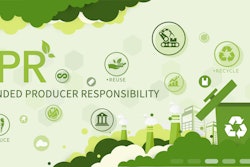
Coming to FDA’s White Oak Campus, the agency will hold its 2019 FDA Science Forum onWednesday and Thursday, Sept. 11 and 12, 2019.
According to the FDA, “The Forum offers an exciting opportunity for the public to view the unique scientific research and collaborative efforts of FDA’s 11,000 scientists.You'll get a chance to see first-hand how FDA's researchers are using novel science and technologies to inform FDA’s regulatory decision-making—and drive innovation.”
What: With the theme of “Transforming Health: Innovation in FDA Science,”FDA scientific experts and nationally renowned scientists will cover the topics listed below.
Who/Why: The Forum welcomes the public, industry, academia, patient advocates, sister agencies, and current and potential collaborators, to learn about the Agency’s regulatory science—the type of science that is rarely undertaken by industry or academia, but that makes critical contributions to product quality and safety.
Where: FDA’s White Oak Campus, or attend virtually.
When: Sept. 11 and 12, 2019
Register:
Register here for Day 1, Wednesday, September 11, 2019
Register here for Day 2, Thursday, September 12, 2019
Contact: Rokhsareh Shahidzadeh at [email protected] for event-related matters.
FDA Science Forum Topic Areas
-
Precision Health: Research exploring topics that may enable precision health for individuals and special populations such as sex differences, the microbiome, personalized modeling, genetics, computational modeling, and in vitro/in vivo assessment of an individual’s susceptibility to toxicity or efficacy.
-
Advanced Technology: Advanced technologies like 3D printing and nanomaterials; the methods, tools, materials, and products used either to make or evaluate products FDA regulates.
-
Product Accessibility, Integrity, and Security: Theory, modeling, methodology, product development, availability, usefulness, cybersecurity, product shortages, and terrorism.
-
Predictive Tools: In vitro/in vivo assays and computational modeling that can offer links between such assays and human responses, tools that predict population-level responses from smaller datasets, and identifying biomarkers and tools that predict toxicity and efficacy of FDA-regulated products in humans and animals.
-
Advancing Digital Health and Artificial Intelligence: Using computers for modeling and simulation of phenomena relevant to FDA’s mission, e.g. analyzing large data sets; collecting and assessing real-world evidence, including understanding and harnessing artificial intelligence and evaluating digital health devices.
-
Outbreak! FDA’s approach to prevention and response, including prevention through cybersecurity and promoting medical product and food security, and rapid response to infectious disease and foodborne pathogen outbreaks, e.g. the use of the animal rule, emergency communication devices, rapid diagnostic tests, anti-microbial resistance.
-
Addiction: Neurobiology, treatment using opioids, cannabinoids, nicotine, and other addictive compounds; including chemistry, biology, user behavior and exposure, social science and marketing, modeling, and prescribing behavior.
-
Empowering Consumers, Patients, and Other Stakeholders: Studies of stakeholder understanding of and interaction with labels, advertising, products, education, and campaigns. Includes campaign development and effectiveness, outreach, and other activities and the science of patient input.





















